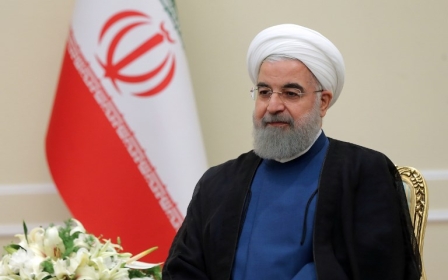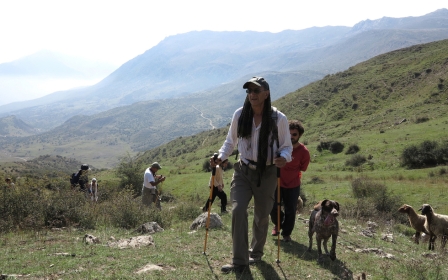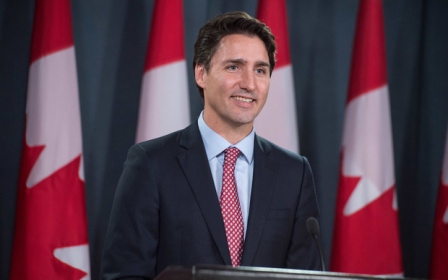Widow of Iranian-Canadian who died in jail barred from leaving Iran, son says
The wife of an Iranian-Canadian environmental activist, who died in prison in Tehran last month, was barred from leaving Iran, one of her sons said, in an unexplained move that drew an angry response from Ottawa.
Raam Emami said in an email to journalists that security forces had not allowed his mother, Maryam Mombeini, to get on a plane to Vancouver with him and his brother on Wednesday night.
Mombeini is the widow of Kavous Seyed-Emami, an environmental activist and sociology professor who was arrested on 24 January and died in prison. Iran's judiciary said Seyed-Emami, 63, had committed suicide.
The family has called for an independent investigation of his death.
Canada's minister of foreign affairs, Chrystia Freeland, said in a message posted on Twitter that she was "outraged" to learn that Mombeini had been barred from leaving Iran.
Seyed-Emami was the managing director of the Persian Wildlife Heritage Foundation, which seeks to protect Iran's rare animals. Iran's judiciary said he had set up the NGO as a cover to collect classified information on the country's missile programme.
Raam Emami said the family decided to leave Iran after being constantly "harassed".
"The government raided our home and seized all of our valuables (most importantly deeds to our homes)," he said. "We can no longer stand this state of constant terror."
Raam Emami has previously said that the family was under pressure from authorities not to publicise the case of Seyed-Emami.
"The authorities told our lawyers to tell the brothers 'to shut up or we'll shut them up'," Emami said, adding government agents had told him they were watching him.
Human rights activists have reported that at least six detainees have died in prison in the last two months in Iran. The judiciary has confirmed three deaths in custody but said all three had committed suicide.
Human Rights Watch had called for an "immediate independent inquiry" into Seyed-Emami's death, calling the charges against him "bogus".
"Iranian judicial authorities think they can get away with claiming that Seyed-Emami, a well-known professor, simply committed suicide while being detained in one of the highest-security wards of Evin prison," Sarah Leah Whitson, the group's Middle East director, said in a statement in February.
"The Iranian judiciary long ago lost its credibility after failing to investigate repeated incidents of torture and mistreatment in detention."
President Hassan Rouhani last month appointed a committee to investigate the incidents in prisons.
Bilateral ties between Iran and Canada worsened in 2003 when an Iranian-Canadian photojournalist, Zahra Kazemi, died in Tehran’s Evin prison while in custody.
Canada cut all diplomatic ties with Iran in 2012.
New MEE newsletter: Jerusalem Dispatch
Sign up to get the latest insights and analysis on Israel-Palestine, alongside Turkey Unpacked and other MEE newsletters
Middle East Eye delivers independent and unrivalled coverage and analysis of the Middle East, North Africa and beyond. To learn more about republishing this content and the associated fees, please fill out this form. More about MEE can be found here.




